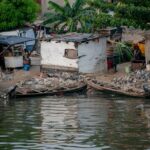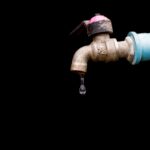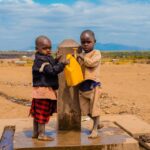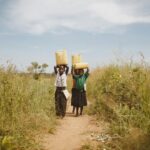Policy and Practice: Making Water Access a Priority
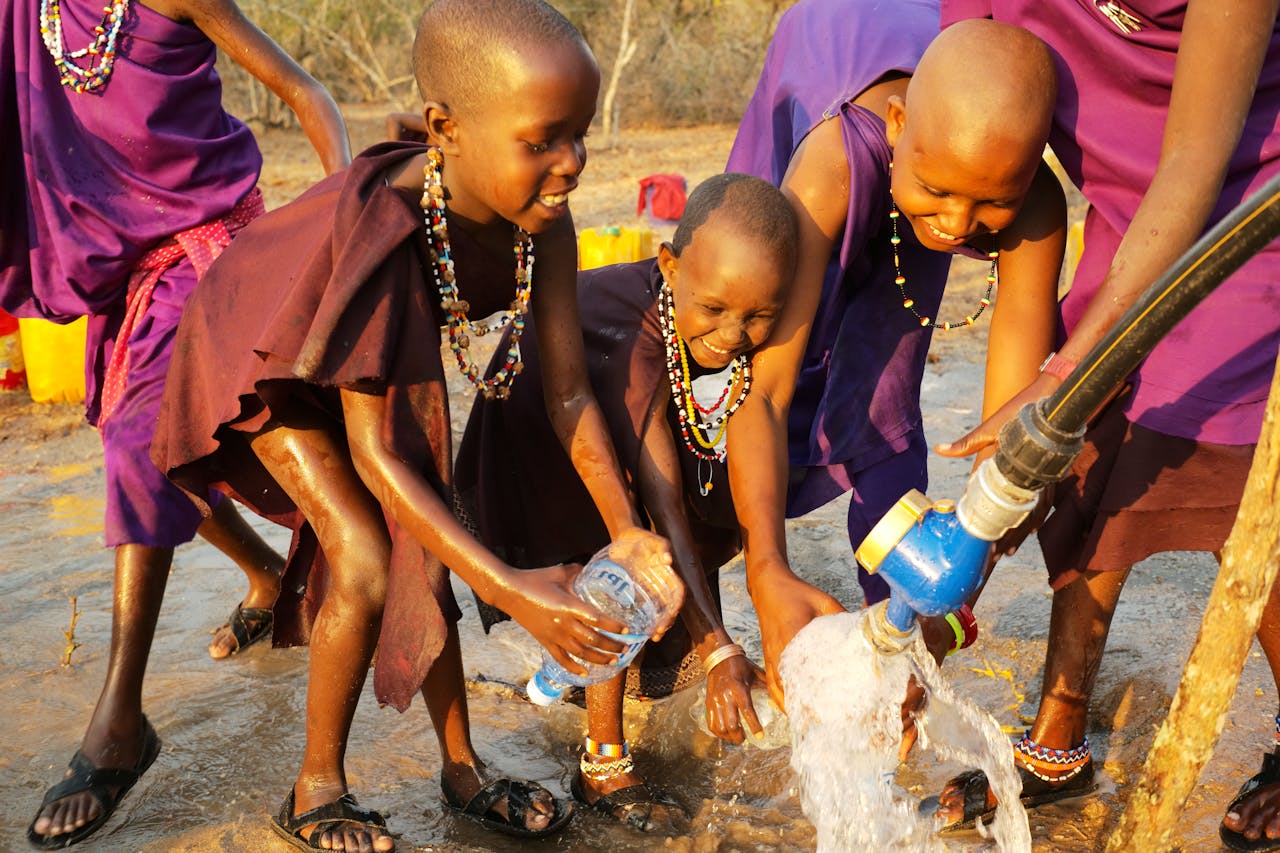
Water beyond being a resource is a fundamental human right. Yet, across the world, millions struggle to access clean water. In West Africa, this challenge is particularly acute, revealing deep connections between policy, infrastructure, and human survival.
Consider Niger: access to drinking water and sanitation is still very low with large disparities between urban and rural areas and between regions. Only 56% of the population has access to a source of drinking water. These aren’t just statistics – they represent real human experiences of daily struggle, missed opportunities, and persistent inequality.
Policy is the bridge between water as a basic need and water as a universal right. It’s about creating systems that work, frameworks that protect, and approaches that truly serve communities.
Current Global Water Access Situation: A West African Lens
West Africa presents a complex water access landscape. Let’s break down the precise realities:
Country-Specific Snapshots:
• Niger: 56% water access, with severe rural-urban disparities
• Mali: 80% water access, but only 70% in rural regions
• Burkina Faso: 75% population with reliable water sources
Key Challenges:
• Rapid population growth straining existing infrastructure
• Climate change reducing water reliability
• Limited financial resources for infrastructure development
• Complex geographical terrains blocking water distribution
Economic Impact:
Agriculture is a major part of Niger’s economy. However, the country experiences frequent droughts, unpredictable rainfall patterns, and other challenges that lead to food and animal feed shortages. These shortages can cause drops in GDP (Gross Domestic Product). Each day without reliable water means:
• Reduced agricultural productivity
• Increased healthcare expenses
• Lost educational opportunities
• Reduced economic participation, especially for women. Basically, economic growth dwindles.
Health Consequences:
• 40% of diseases in West African countries are water-related
• Children under five are most vulnerable
• Average hospital admission rates for water-borne diseases: 40-50% higher in regions with limited water access
International Policy Frameworks: Global Strategies, Local Realities
International policies provide critical guidance, but implementation varies dramatically across West African contexts.
United Nations Sustainable Development Goals (SDGs):
Goal 6 aims to “ensure availability and sustainable management of water and sanitation for all” by 2030. For West African countries, this means:
• Investing in infrastructure
• Developing community management systems
• Creating affordable water access mechanisms
Specific West African Interventions:
• ECOWAS (Economic Community of West African States) Water Policy
- Developed comprehensive regional water management strategy
- Focuses on cross-border water resource management
- Promotes technology transfer and knowledge sharing
International Support Mechanisms:
● World Bank’s support for Sustainable Urban and Rural Water Supply, Sanitation, and Hygiene Program (SURWASH) in Nigeria:
- Invested $700 million to the cause
- Provided 6 million people with basic drinking water services and 1.4 million people access to improved sanitation services.
- Delivered improved water sanitation and hygiene (WASH) services to 2,000 schools and health care facilities and assisted 500 communities to achieve open defecation free status.
- Supported the development of infrastructure to improve water supply service delivery, sanitation, and hygiene in institutions (schools and healthcare facilities) and public places such as markets, motor parks, and others.
Successful Policy Elements:
• Decentralized water management
• Working infrastructure
• Community training programs
• Technology integration
• Climate adaptation strategies
Challenges in Implementation:
• Inconsistent funding
• Political instability
• Limited local technical capacity
• Complex geographical barriers
National Policy Approaches: Navigating Local Complexities
West African countries demonstrate unique approaches to water policy, each reflecting local challenges and opportunities.
Senegal’s Water Governance Model:
• Implemented in 1995
• Partially privatized water management
• Created SONES (National Water Company) to oversee infrastructure
• Reduced water cost in urban areas
• Increased water access in major cities
Mali’s Decentralized Water Management:
• Introduced community water committees in rural regions
• Local groups (water user associations) responsible for:
• Water point maintenance
• Fee collection
• Basic repair and management
• Increased water access from 36% to 60% in Bamako
Comparative Analysis:
• Burkina Faso: Centralized government management
• Ghana: Mixed public-private approach
• Côte d’Ivoire: Heavy international partnership model
Each country sticks with what mode of operation works for them.
Legal Frameworks and Human Rights: Water as a Fundamental Right
Legal recognition transforms water from a commodity to a human right.
Constitutional Provisions:
• Senegal (2022): Officially recognized clean water and environment as a human right
• Niger (2008): Legal framework defining minimum water standards
Key Legal Mechanisms:
• Defined water access standards
• Pricing regulations
• Anti-discrimination clauses
• Community consultation requirements
• Transparent reporting mechanisms
Practical Implications:
• Legal recourse for communities
• Government accountability
• Standardized service delivery
• Protection for vulnerable populations
Economic Models and Funding: Innovative Financing Strategies
Funding remains the critical challenge in water infrastructure development.
Funding Sources:
1. International Development Aid
- World Bank investments: US$714 million over the last 20 years in 10 regional projects in the four major transboundary river basins in West Africa – Senegal, Niger, Lake Chad and Volta.
- European Union water infrastructure grants
- UNICEF targeted community water programs
2. Innovative Financing Models:
• Community microfinance water funds in Ghana
• Impact investment schemes in Senegal
• Blockchain-enabled transparent funding platforms
• Diaspora community investment programs
Challenges:
• Limited local financial capacity
• High infrastructure development costs
• Complex international funding mechanisms
• Political instability risk
Technological Innovations in Policy: Bridging Gaps with Smart Solutions
Technology is reshaping water access policy across West Africa, with targeted innovations addressing specific regional challenges.
Policy-Supported Technologies:
• Solar-powered water pumps in Niger’s Sahel region
• Mobile water quality testing platforms in Ghana
• Blockchain based water management
Policy Support Mechanisms:
• Tax incentives for water technology developers
• Grants for local innovation
• Streamlined regulatory approval for water technologies
• Technical training programs
• Public-private innovation partnerships
Environmental Considerations: Water and Climate Resilience
West Africa faces unique environmental challenges in water management.
Climate Change Impacts:
• Reduced rainfall in Sahel region
• Increasing drought frequency
• Groundwater depletion
• Changing river flow patterns
Adaptive Strategies:
1. Niger’s Integrated Water Resource Management
• Ecosystem-based water conservation
• Reforestation around water sources
• Traditional knowledge integration
• Climate-resilient agriculture support
2. Ghana’s Watershed Protection Policy
• Sustainable land use regulations
• Community-based conservation programs
• Reduced soil erosion
• Improved water quality
Policy:
• Climate-adaptive infrastructure design
• Water recycling mandates
• Ecosystem preservation laws
• Carbon-neutral water infrastructure goals
Challenges and Future Directions
Emerging Challenges:
• Rapid urban population growth
• Increasing water demand
• Climate uncertainty
• Limited financial resources
• Technological adaptation
Future Policy Recommendations:
• Increased regional cooperation
• Technology transfer mechanisms
• Sustainable financing models
• Community-centered approaches
• Continuous policy innovation
Monitoring Accountability: Ensuring Policy Implementation
Tracking progress and maintaining accountability are crucial for effective water policies in West Africa.
Monitoring Systems:
Mali’s Digital Tracking Platform
• Real-time water point monitoring
• Community reporting mechanisms
• Performance metrics tracking
• Public data accessibility
Accountability Mechanisms:
• Public reporting requirements
• Community feedback systems
• Performance-based funding
• Regular policy reviews
• Transparent complaint processes
Success Metrics:
• Water quality standards
• Access reliability
• Infrastructure maintenance
• Financial management
• Community satisfaction
Urban-Rural Policy Dynamics: Bridging the Access Gap
Urban and rural areas require different policy approaches while maintaining equitable access.
Urban Challenges:
● Lagos
• High-density population management
• Infrastructure strain
• Water quality control
• Cost recovery systems
• Informal settlement inclusion
Urban Solutions
- Improve water infrastructure
- Ensure access to clean water and sanitation
- Enhance sanitation services
- Empower communities to take ownership of their water sources
Rural Solutions:
● Niger’s Rural Water Initiative
• Decentralized management
• Simple technology adoption
• Community ownership
• Local capacity building
• Traditional knowledge integration
Bridging Strategies:
• Cross-subsidization programs
• Shared resource management
• Technology transfer
• Knowledge exchange
• Integrated planning
Conclusion
The future of water access in West Africa, and globally, depends on turning good policies into everyday practices. When we do this right, we do more than provide water – we provide dignity, opportunity, and hope for millions of people
The journey to universal water access requires multiple approaches working together:
• Strong legal frameworks that protect water as a human right
• Smart technology that makes access easier and more reliable
• Community engagement that ensures solutions last
• Environmental protection that safeguards water sources
• Clear monitoring systems that keep everyone accountable
• Balanced urban-rural strategies that leave no one behind
Success stories across West Africa prove that progress is possible. We’ve seen how:
• Mali’s digital tracking improved service delivery
• Burkina Faso’s community committees increased local ownership
• Niger’s rural water initiative brought sustainable solutions to remote areas
But these successes also remind us that water access isn’t just about pipes and pumps. It’s about:
• Building trust between communities and governments
• Creating systems that work for everyone
• Protecting resources for future generations
• Ensuring accountability at every level
• Bridging the gap between urban and rural needs
The path forward requires continued commitment, innovation, collaboration and support for NGOs like Aqua Maya who would see to it that underserved communities have access to clean water. As climate change creates new challenges and populations grow, policies must keep evolving. But with strong frameworks, community involvement, and careful monitoring, global water access will not just be a dream, but an achievable goal.
Sources
1. https://www.who.int/news-room/fact-sheets/detail/drinking-water
2. https://www.afro.who.int/health-topics/water
3. https://unstats.un.org/sdgs/report/2017/goal-06/
4. https://washnigeria.com/wp-content/uploads/2022/11/West-Africa-Water-Resources-Policy.pdf
5. https://www.researchgate.net/publication/307607639_Governance_and_Water_Service_Delivery_in_Senegal
6. https://humanright2water.org/blog/2024/10/08/community-centered-water-governance/
7. https://www.mofep.gov.gh/sites/default/files/reports/economic/ppp_policy.pdf
8. https://iwlearn.net/documents/legal-frameworks/niger-basin
9. https://www.fao.org/in-action/remote-sensing-for-water-productivity/country-activities/mali/2/en

